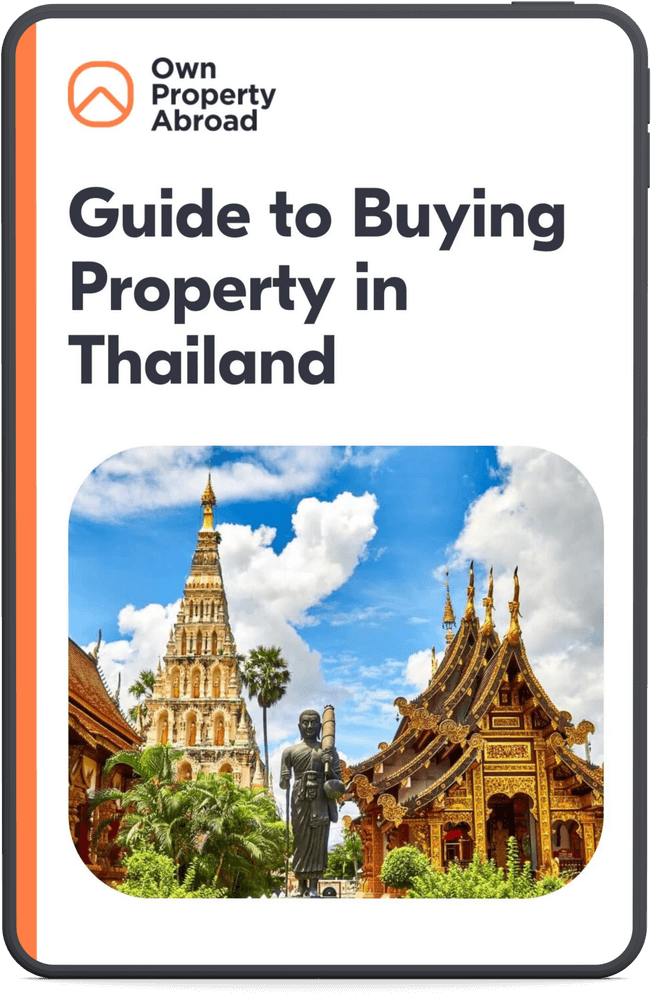Importance of a Thailand property title search
Before purchasing a property in Thailand, you must know what you are buying. Doing a title deed search on any real estate purchase, whether for land or a condominium, is highly advisable. A property title search in Thailand lets buyers check if the seller owns the property and is entitled to sell it. In addition to ownership verification, it discloses any pending claims or encumbrances, like liens or mortgages, which may affect the property. A title deed search in Thailand may provide a complete record of property ownership back to the initial owner.
Valuable insights and practical advice, distilled from years of expertise and real-world experience.


Types of land titles in Thailand
The Department of Land was established in 1901, and there have been various types of land ownership in Thailand, and different kinds of land title documents have been issued. Here are the land title deeds in Thailand:
- Nor Sor Si Jor (Chanote Title or Title Deed Certificate): The N.S.4.J, or Chanote Title, is the sole title deed to land that attests to outright property ownership in Thailand. Land held under a Chanote title is accurately surveyed, GPS-mapped onto a national survey grid, and staked out with uniquely numbered markers.
- Nor Sor Sam (N.S. 3): N.S.3 is a title deed that shows an individual’s right to hold a particular piece of land, with boundaries to be ascertained from adjacent plots. The boundaries have no tangible markers. The title name signifies the holder with legal entitlements over the land but not full ownership.
- Nor Sor Sam Kor (N.S. 3 K): The N.S.3.K is surveyed and issued in an area without parcel points using aerial surveying techniques. Land use is not controlled, and no legal action is required. Moreover, the land can be subdivided into parcels.
- Nor Sor Song (N.S. 2): The N.S.2 is a land department permission letter that gives the holder a right to occupy and use the land temporarily. The holder is supposed to begin using the land within 6 months and complete their use within 3 years. Transfer of the land or sale is prohibited, apart from inheritance.
- Sor Kor Nung (S.K. 1): Thailand’s S.K.1 land title deed is a notice of land possession with restricted rights. The holder can use the land, generally for agriculture. The occupant could have more rights than the holder of the notification form. The land can be inherited or sold, and the conveyance passes the possession and the notification form. Yet rights such as sale, lease, or mortgage cannot be registered in this land.
How to conduct a property title search in Thailand?
Here are the several steps in a property title search in Thailand:
Step 1. Land title verification
The first step in a property title search in Thailand is to verify the type of title deed associated with the property. An official title deed verifies various types of land ownership in Thailand. Ensuring the land has the correct title deed is essential to prevent ownership disputes or legal complications.
Step 2. Review the Land Department records
Land Department records must be searched to verify the property’s status. This is an essential process in a property title search in Thailand to ensure any mortgage or liens on the property. If there is a mortgage, the seller must settle it before the transfer of property ownership. Additionally, it is vital to check for any servitudes or easements that could grant third parties rights encroaching upon the use of the land by the buyer.
Step 3. Verify property boundary and land use
A boundary and land use verification confirms that the physical boundaries of the property are as they appear in the title deed. A land survey, usually involving the local Land Office and a surveyor, verifies the land’s area, shape, and legal boundaries. This process in a property title search in Thailand also checks zoning laws for allowable land uses, such as residential or commercial. Confirming these facts prevents neighbor disputes and assures the buyer to utilize the property for their desired purpose.
Due diligence on Thai property
Conducting a property title search in Thailand is one of the due diligence processes required when buying or selling real estate. However, the title deed search is not the end, and there are other due diligence measures in real estate transactions, including:
- Seller verification: When buying property in Thailand, you will probably deal directly with a real estate agent or even the property owner. To avoid scams in the Thai real estate market, it is essential to cross-check the agent’s qualifications and identity.
- Physical inspection: A critical step in property title search in Thailand is conducting a personal physical inspection. When you purchase a house, there should be an inspection to identify the property’s precise state and whether it is defective regarding major or minor flaws. Being present during this inspection gives buyers a personal insight into the property they are buying.
- Foreign ownership restriction: Foreigners are not allowed to own land in Thailand but can legally purchase condominium units provided that foreign ownership of the building is not more than 49%. It is a crucial due diligence process to confirm the foreign ownership in a condominium before buying a unit to avoid future disputes.
Valuable insights and practical advice, distilled from years of expertise and real-world experience.


Frequently Asked Questions (FAQs)
What is a chanote title?
A Chanote title (N.S.4.J) is Thailand’s most superior type of land ownership. It offers absolute ownership rights, accurate GPS mapping, and freedom to sell, transfer, or subdivide the land.
Can I check a property title in Thailand online for free?
You can’t check a property title in Thailand online for free. A property title search in Thailand must be conducted in person at the local Land Office.
Where to verify chanote in Thailand?
You can verify a Chanote title in Thailand at the local Land Office where the property is registered.
Is it possible to check a property title in Thailand by name?
No, to check a property title in Thailand requires the land title deed number and location, not a person’s name.
Why is ownership verification necessary when buying property in Thailand?
Ownership verification is necessary when purchasing property in Thailand to confirm that the seller has lawful rights to the property and that there are no outstanding encumbrances, disputes, or restrictions.
How to conduct due diligence on land title documents in Thailand?
To conduct due diligence on land title documents in Thailand, check the title type at the Land Office, look for mortgages, liens, or disputes, verify the boundaries, examine zoning and land use controls, and ensure the seller has clear legal ownership before finalizing the sale.




